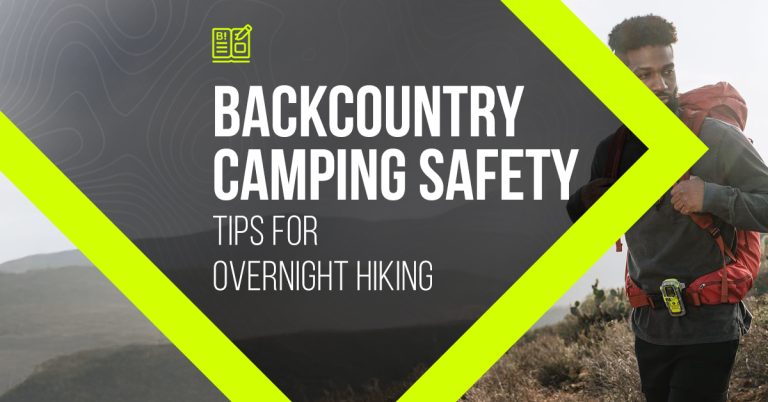
Backcountry Camping Safety: Tips for Overnight Hiking Trips
Posted on April 10, 2025
Exploring the backcountry offers a unique opportunity to connect with nature, enjoy stunning landscapes, and find solitude away from the hustle and bustle of everyday life. However, overnight hiking trips in remote areas also come with inherent risks. Proper preparation and knowledge are essential for maximizing backcountry camping safety and ensuring an enjoyable experience. Here are some crucial tips to help you stay safe on your backcountry camping adventure.
1. Plan and Prepare
Research Your Route
Before embarking on your trip, thoroughly research your chosen route. Obtain detailed maps, guidebooks, and recent trip reports. Understand the terrain, elevation changes, and potential hazards such as water crossings, steep sections, and wildlife encounters. There are numerous free resources available online that will allow you to explore hiking trails across the country.
Check Weather Conditions
Weather can change rapidly in the backcountry. Check the forecast for your destination and be prepared for various conditions. Pack appropriate clothing and gear for rain, snow, and extreme temperatures. Certain 2-Way Satellite Communication Devices such as the Bivy Stick or Bivy Stick MESH offer both navigation and weather features to help you plan and safely complete your intended route.
Obtain Permits and Know Regulations
Many backcountry areas require permits for overnight camping. Ensure you have the necessary permits and are familiar with the rules and regulations of the area, such as campfire restrictions and designated camping zones. Backcountry permits for the U.S. National Parks can be found on the National Park Service website.
2. Pack the Essentials
Navigation Tools
Carry a detailed map, compass, and GPS device. Familiarize yourself with how to use them before your trip. Even if you have a GPS, knowing how to navigate with a map and compass is crucial in case your electronic devices fail.
First Aid Kit
A well-stocked first aid kit is essential for treating minor injuries and managing emergencies. Include items such as bandages, antiseptics, pain relievers, blister treatment, and any personal medications.
Shelter and Sleeping Gear
A reliable tent, sleeping bag, and sleeping pad are vital for a comfortable and safe night in the wilderness. Choose a tent that can withstand the weather conditions you may encounter, and ensure your sleeping bag is suitable for the expected temperatures.
Food and Water
Pack enough food for the duration of your trip, plus an extra day’s supply in case of delays. High-calorie, non-perishable foods like nuts, dried fruits, and energy bars are ideal. Ensure you have a reliable method for purifying water, such as a water filter, purification tablets, or a stove for boiling water.
3. Stay Safe on the Trail
Leave No Trace
Follow Leave No Trace principles to minimize your impact on the environment. Pack out all trash, dispose of waste properly, and camp at least 200 feet away from water sources to protect fragile ecosystems.
Wildlife Awareness
Understand the wildlife in the area and take appropriate precautions. Store food securely in bear-proof containers or hang it from a tree. Keep a safe distance from animals and never feed them.
Monitor Your Health
Pay attention to your body and take breaks as needed. Stay hydrated, eat regularly, and be aware of signs of dehydration, heat exhaustion, or hypothermia. If you or a companion feel unwell, consider turning back or seeking help.
4. Emergency Preparedness
Share Your Plans
Before you leave, inform a trusted friend or family member of your itinerary, including your planned route, camping locations, and expected return date. Check in with them when you return.
Emergency Communication
Ensure you have a reliable means of communicating in an emergency using a 2-way satellite communication device or a personal locator beacon (PLB). Cell phone coverage is often unreliable in remote areas, so having a backup means of communication is crucial in emergencies.
Know Basic Survival Skills
Familiarize yourself with basic survival skills, such as building a fire, finding and purifying water, and constructing a makeshift shelter. These skills can be lifesaving in unexpected situations.
Backcountry camping safety should always be a priority as this directly contributes towards having an incredible and rewarding experience. By planning thoroughly, packing the right gear, staying aware of your surroundings, and being prepared for emergencies, you can ensure a safe and enjoyable overnight hiking trip. Remember, the key to a successful backcountry adventure is to be prepared, stay informed, and respect the wilderness you are exploring. Happy hiking!